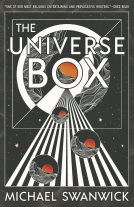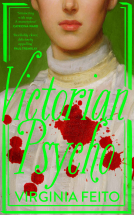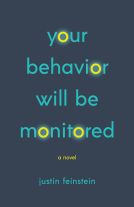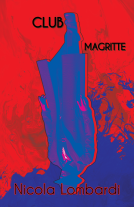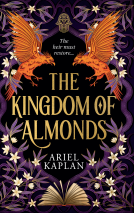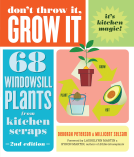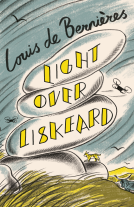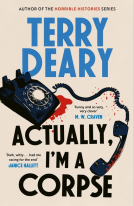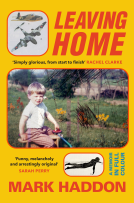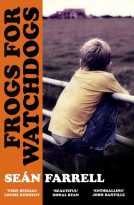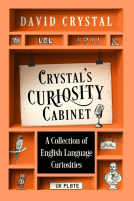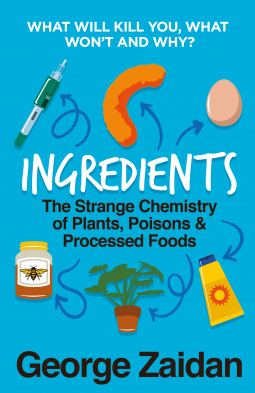
Ingredients
The Strange Chemistry of Plants, Poisons and Processed Foods
by George Zaidan
This title was previously available on NetGalley and is now archived.
Send NetGalley books directly to your Kindle or Kindle app
1
To read on a Kindle or Kindle app, please add kindle@netgalley.com as an approved email address to receive files in your Amazon account. Click here for step-by-step instructions.
2
Also find your Kindle email address within your Amazon account, and enter it here.
Pub Date 9 Jul 2020 | Archive Date 7 Aug 2020
Duckworth Books | Duckworth
Talking about this book? Use #Ingredients #NetGalley. More hashtag tips!
Description
Cheese puffs. Coffee. Sunscreen. Vapes. George Zaidan reveals what will kill you, what won’t, and why—explained with high-octane hilarity, hysterical hijinks, and other things that don’t begin with the letter H.
Ingredients offers the perspective of a chemist on the stuff we eat, drink, inhale, and smear on ourselves. Apart from the burning question of whether you should eat that Cheeto, Zaidan explores a range of topics. Here’s a helpful guide:
Stuff in this book:
- How bad is processed food? How sure are we?
- Is sunscreen safe? Should you use it?
- Is coffee good or bad for you?
- What’s your disease horoscope?
- What is that public pool smell made of?
- What happens when you overdose on fentanyl in the sun?
- What do cassava plants and Soviet spies have in common?
- When will you die?
Stuff in other books:
- Your carbon footprint
- Food sustainability
- GMOs
- CEO pay
- Science funding
- Politics
- Football
- Baseball
- Any kind of ball really
Zaidan, an MIT-trained chemist who cohosted CNBC’s hit Make Me a Millionaire Inventor and wrote and voiced several TED-Ed viral videos, makes chemistry more fun than Hogwarts as he reveals exactly what science can (and can’t) tell us about the packaged ingredients sold to us every day. Sugar, spinach, formaldehyde, cyanide, the ingredients of life and death, and how we know if something is good or bad for us—as well as the genius of aphids and their butts—are all discussed in exquisite detail at breakneck speed.
Advance Praise
'Ingredients lifts the film from our eyes with humour and reassurance.' Hank Green, author of An Absolutely Remarkable Thing
'At last, a book on nutrition that tries to make you understand how little we know instead of offering blanket prognostications. If instead of a simple solution, you want a guide to how to think about health, this is it.' Zach and Kelly Weinersmith, New York Times best-selling authors of Soonish
'Ingredients, is everything that should lead you to expect: funny, edgy, fascinating, dismaying, reassuring, and overall just incredibly smart.' Deborah Blum, Pulitzer prize-winning author of The Poison Squad
'You should buy Ingredients because it teaches you how to think better - like a smart, informed, and wickedly funny scientist.' Sam Kean, author of The Disappearing Spoon
'Omfg this book is FABULOUS! It's hilarious, insightful, sassy, and reassuring. A delightful roller-coaster of science communication.' Kallie Moore, Co-host of PBS Eons
Average rating from 17 members
Featured Reviews
 Reviewer 2883
Reviewer 2883
Thanks to netgalley and Duckworth books for access to this arc.
Just the cover alone was enough to grab my attention but then the blurb promised me info on coffee, cheesepuffs and sunscreen. Here’s a book on science by an MIT trained chemist who’s trying to cut through the bullshit and reveal what goes into experiments, what can be wrong about experiments (turns out – a whole shitload), why not to click on the latest “Studies Reveal …!!!” headline on the internets, and how to look at association vs causal vs should you really worry.
There’s a lot of science out there but there’s a lot of bad science out there, too. Since our brains are naturally poised to take the swan dive leap from “association” to “it’s true!,” it behooves us to keep in mind that not every earth shattering “science” headline we read actually is true. The things we eat, drink, smoke, and slather on our bodies are complicated chemicals and since our bodies have lots of complicated chemicals in them, weird reactions can and do take place that are hard to study or understand. And sometimes processed foods are actually good for us. Well, what do you think honey is?
I also learned a lot of things. Plants – sometimes they are out to kill you. The importance of photosynthesis – we’d all be dead without it so even if some plants are out to kill you, they’re still the good guys. Transforming toxic plants into edible food is processing them. Microbes will steal our food if they can get to it first but sometimes we can use the little bastards to our own ends. Aphid shitballs taste good. Scientists can hold grudges against each other. They can also engage in p-hacking because it’s publish or perish. It’s too bad that the word “theory” has different meanings to scientists and nonscientists.
So will that Cheeto kill you? Probably not. But bags and bags of them over years and years probably won’t do much for your health. Is sunscreen safe? It’s better than getting cancer from sun tanning as proved in a (sorta scientific controlled) experiment that Great Britain (unintentionally) set up centuries ago called “Australia.” Is coffee good or bad for you? Yes. And you don’t want to know what causes the “Pool Smell” (it ain’t just bleach).
If chapter headings such as “Associations, or the Grapes of Math” with subheading “This chapter is about Ents, private jets, potholes, olive oil, Scorpios, and Santa” appeal to you, check out this hilarious trip through Science. Because … it’s Science! B
It’s fair to say George Zaidan’s Ingredients is written in an idiosyncratic way (and that’s NOT a criticism). The dedication reads “To Mom, Dad, and Julia: Sorry”. Any book that makes me snigger before Page 1 and then starts the preface with “Going to university was like going to Hogwarts.” has me gripped!
Zaidan takes us through the chemistry of food and the statistics of nutritional studies in a very approachable manner. He obviously really really knows his stuff but explains it with simple equations such as “SOME CHEMICAL + SOME OTHER CHEMICAL ALL HELL BREAKS LOOSE”. Consider a question such as “Is processed food bad for you?”. Zaidan forces us to consider each aspect of the question: what do we mean by “processed”? How do we measure “bad for you”? A woffly question will get a woffly answer – precision is important if we want accurate answers.
We’re accustomed to seeing headlines such as “Scientists say coffee linked to heart disease”, followed sometime later by “Scientists say coffee NOT linked to heart disease”. Surely, it’s one or the other – can’t scientists make their minds up? Zaidan explains that we expect science to be deterministic, e.g. if you add vinegar to baking soda, you will always get a bubbly froth. However, many chemical reactions are probabilistic: if a human smokes cigarettes, there is a (very high) probability it will kill them – but it’s not a 100% certainty. Zaidan takes us through the steps of deciding whether smoking causes cancer, challenging conclusions every step of the way and forcing us to consider whether there may be alternative explanations. He explains the vast chasm of difference between correlated and causal, showing how we should challenge sensational headlines with questions such as “How many people were involved in the study?”; “Did the scientists preregister the study in NIH’s database, stating what they were going to do; what they predicted the outcome would be; and what it actually was?”
I loved the facts strewn through the book, e.g. an oak tree can make 25kg of glucose every single day and lactobacillus reproduces at speeds that make rabbits look like nuns. I think the combination of chatty “trust me because I speak street-language” with an excellent explanation of the science is a winner. However, I’m less convinced that the street-language has to contain expletives (and that's the only reason I'm giving four stars, not five). I don’t think they’re necessary in a book that should be compulsory reading for anyone allowed to vote. This book doesn’t just explain the science of food and how our bodies react, it also teaches us to ask probing questions about any statement of so-called “facts”.
#Ingredients #NetGalley
 Rebecca H, Reviewer
Rebecca H, Reviewer
This is a fascinating book examining not just some ingredients of our modern lives, but the process by which scientists figure out what's good for us and what is not. Consider: for the first few decades of serious research on the health effects of coffee, a significant number of coffee drinkers always paired that cup of Joe with a cigarette.
Factors like these can make it hard to come up with firm decisions about what we should do for our health.
The book is full of graphic details (I will never think of aphids the same way again) and surprising insights into chemistry's contributions to our health. There are also some recommendations for how we can make responsible decisions about the ingredients we consumer.
You don't need a strong science or math background to understand this book, and it's really quite funny.
 CATHY C, Bookseller
CATHY C, Bookseller
If you're like me and live math and science, this book's for you! In Ingredients, Gregory Zaidan explains the process and mathematics behind studies of probable outcomes, including the issues of mathematical errors and poorly chosen study subjects.
Ingredients also answers such pressing questions as, "Is too much sunscreen bad for you?" Answer is "probably" since it's killing coral reefs. Another question asks how many cheese puffs must you eat to affect your life expectancy?
If you like your facts with a side of snark, Ingredients is a great read for you!
In the interest of full disclosure, I received a free digital copy of this title to review from Net Galley.
#Ingredients#NetGalley
 Mike D, Reviewer
Mike D, Reviewer
Not only throughly informative, but also surprisingly hilarious guide to things we really ought to know. But also a reminder of just how much we don't know and how much science changes its mind on these matter. Smart, informative, well written. Recommended. Thanks Netgalley.
 Daniel Q, Media/Journalist
Daniel Q, Media/Journalist
Thanks to NetGalley for this title.
Wow! What a really well written, clear and well-researched piece of pop-science writing. I was immediately entertained by the writing style, and within the first two or three pages, I was recommending this book to everyone I know.
If you've ever wondered to what extent you can believe news headlines that say things like "Eating too many onions gives you cancer" or suchlike, this is absolutely the book for you. In fact, even if you haven't wondered that, it's still probably the book for you. Instead of overwhelming you with scientific jargon to the point your eyes gloss over and you fall asleep, this book gives you all the science and evaluates the evidence carefully without your needing a degree from Harvard to understand it.
Overall an excellent introduction to organic chemistry and food science.
 Cindy R, Reviewer
Cindy R, Reviewer
OMG. If you have ever read a headline like “ Coffee causes Cancer” and thought you had to stop drinking coffee, You MUST read this book.
It is a lot of science and takes a little time and effort to get into, but the author is hilarious as he explains the science of stats and studies and process of foods we consume.
I will never hear a statistical headline again without putting on the asshole hat. Best book I have ever seen on the statistic front. A must read even if you are not a scientist.
 Anne M, Reviewer
Anne M, Reviewer
One thing’s for sure: George Zaidan is beautifully nuts. How else can you turn what is an intrinsically fascinating but ever-so-slightly dry subject into a book of witty ROTFL chapters?
Whether you contemplate embalming a cow or follow Mabel the aphid when she expertly plunges her syringe mouth into a leaf, the life of ingredients is nevernever dull.
I haven’t had that many belly laughs (especially for a science book) in a looooong time. It lifts the lid on the confusing world of sunscreens and tells you that when you REALLY use the manufacturer’s recommended amount: “I felt like I had walked through a Lurpak carwash.”
The chapter on lifestyle choices and their resulting actual change in life expectancy was one of the most enlightening I’ve read to date.
I’ve already bought a copy for my sunscreen-eschewing, vaping friend for a lot of Eureka moments and, no doubt, there will be more to follow for the processed-food-loving smokers of my acquaintance.
The beauty of the book is that it is never condescending or preachy, but, BOY, does it ram the message home.
A shining whopping Grade A belter of a book!
